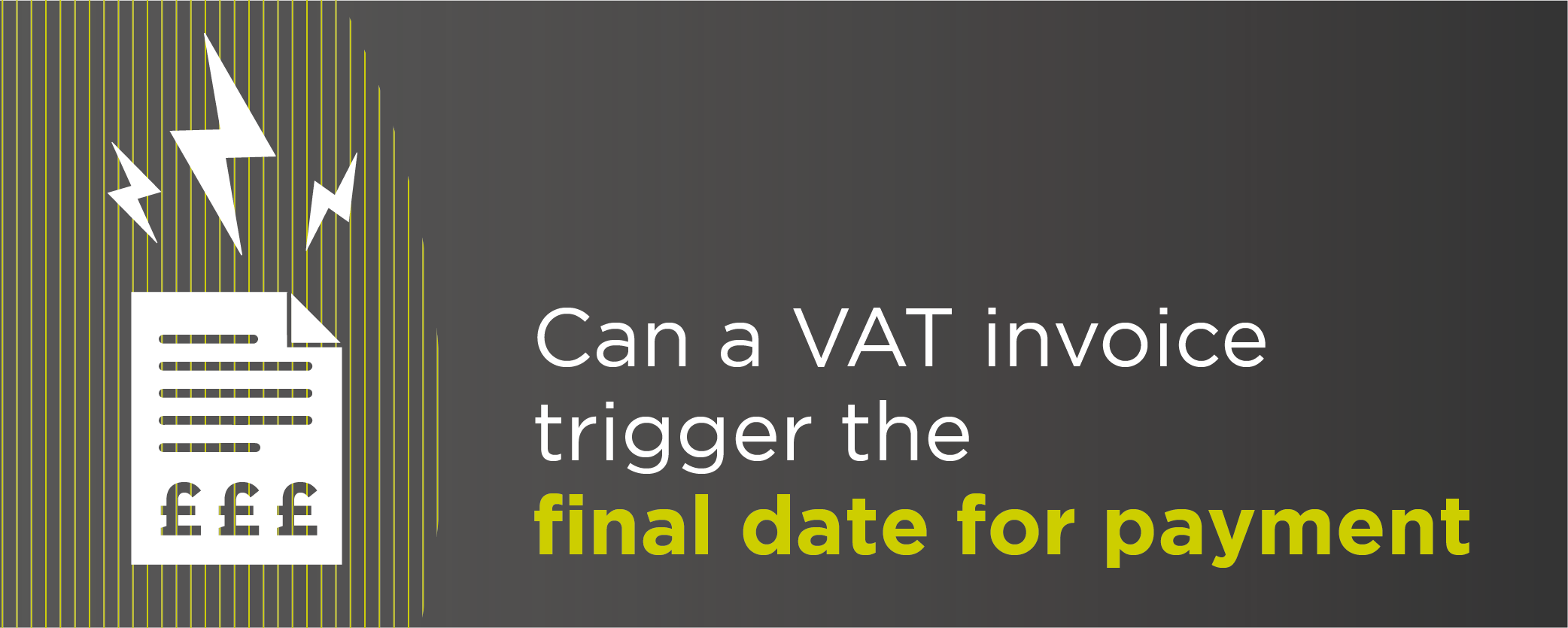- Basildon 01268244144
- Chelmsford 01245453800
- Colchester 01206217300
- London 020 4586 1280

Paying parties often look at ways to delay or avoid having to make payment for work that has been carried out. A method increasingly seen is by saying that the final date for payment runs from the submission of a VAT invoice. However, in the case of Lidl Great Britain Limited v Closed Circuit Cooling Limited, it was held that making the final date for payment dependent on the submission of a VAT invoice did not comply with the requirements of the Housing Grants Construction and Regeneration Act 1996 and therefore was not enforceable.
The Three Key Payment Dates
In most construction contracts, there will be three important dates relating to payment. The first will be a date for valuation, which will probably include a date for making an application for a payment. There will then be the due date for payment. Despite its description, this is not the date when payment will be made. Finally, there will be a final date for payment. This is the date when the sum that has been calculated to be due must be paid.
Payment Notices and VAT Invoices
Following the due date for payment, a paying party would have to serve a payment notice setting out the sum it believed was due, or a pay less notice setting out any deductions to be made to the amount that it was intending to pay.
A paying party would want a VAT invoice for any payment, but it was also seen as a way of delaying or avoiding payment. If the receiving party had to send a VAT invoice before the final payment date was calculated, that would delay payment whilst the receiving party received the payment or pay less notice, drew up an invoice and then sent it to the paying party.
Furthermore, the receiving party might be reluctant to send a VAT invoice if it did not accept the valuation. The receiving party may also have sent a VAT invoice with its application for the amount that it was applying for. It might not realise that it then had to send a new VAT invoice for the works as valued. This all causes delays in payment.
Legal Precedents
In Rochford Construction Limited v Kilhan Construction Limited, it was stated that a due date for payment could be fixed by reference to an invoice or a notice, but not the final date for payment. In Lidl, the judge confirmed this and held that the final date for payment could not be calculated from service of a VAT invoice.
Implications and Benefits of Fixed Payment Dates
If a contractual clause requires submission of a VAT invoice it will not be enforceable and the relevant provisions of the Scheme for Construction Contracts replace the offending clause. At present, that would mean the final date for payment is 17 days from the due date for payment. There are a number of benefits with regard to this for the receiving party, some unintended.
Firstly, it will bring about certainty as to when the final date for payment is. It is also likely to reduce the time period that the receiving party has to wait for payment. Often, a contract states that the final payment date is 28 days after the due date. So this period is reduced by 11 days. Interest on any unpaid sum would also run from an earlier date. Finally, it may also mean that any pay less notice that is sent is not effective. This would be because the pay less notice may have been served in accordance with the timescale based on a final date for payment calculated by reference to the VAT invoice. Under the scheme, this date will be much earlier, and therefore it would be likely that any pay less notice was served out of time and too late to be relied upon.
Any receiving party, especially subcontractors, with such a clause in their contracts may wish to point this out to obtain earlier payment of their invoices.
For assistance on this matter, please contact me on 01245 453813 or via email at peter.allen@birkettlong.co.uk


